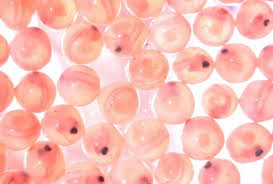Egg-Freezing: What's the Success Rate?
By Staff Reporter,
BBC News
| 02. 17. 2020
The fertility expert, Lord Robert Winston, appeared on BBC Radio 4's Today programme to discuss the campaign to relax the current ten-year limit on freezing eggs.
Lord Winston, who is professor of fertility studies at Imperial College London, warned that it was "a very unsuccessful technology" and said: "The number of eggs that actually result in a pregnancy after freezing is about 1%." He later clarified he was referring to live births.
But the body which regulates fertility treatment in the UK - the Human Fertilisation and Embryology Authority (HFEA) - puts the success rate at closer to one in five - a far better chance than the one in a hundred Lord Winston suggests.
So, why the different figures?
It's because the two are measuring the success rate based on different stages of fertility treatment.
An IVF cycle involving frozen eggs goes something like this:
- Eggs which were previously frozen and stored are thawed
- The ones that survive the thawing will be fertilised with sperm
- Eggs that are successfully fertilised start to develop into embryos
- Of the embryos that...
Related Articles
By Diaa Hadid and Shweta Desai, NPR | 01.29.2026
MUMBRA, India — The afternoon sun shines on the woman in a commuter-town café, highlighting her almond-shaped eyes and pale skin, a look often sought after by couples who need an egg to have a baby.
"I have good eggs,"...
By George Janes, BioNews | 01.12.2026
A heart attack patient has become the first person to be treated in a clinical trial of an experimental gene therapy, which aims to strengthen blood vessels after coronary bypass surgery.
Coronary artery bypass surgery is performed to treat...
By Staff, ScienceDaily | 01.05.2026
Scientists at UNSW Sydney have developed a new form of CRISPR technology that could make gene therapy safer while also resolving a decades-long debate about how genes are switched off. The research shows that small chemical markers attached to DNA
...
Following a long-standing CGS tradition, we present a selection of our favorite Biopolitical Times posts of the past year.
In 2025, we published up to four posts every month, written by 12 authors (staff, consultants and allies), some in collaboration and one simply credited to CGS.
These titles are presented in chronological order, except for three In Memoriam notices, which follow. Many more posts that are worth your time can be found in the archive. Scroll down and “VIEW...




